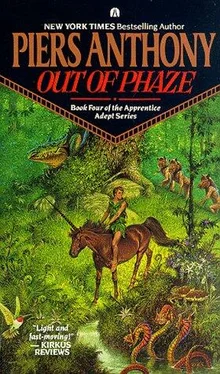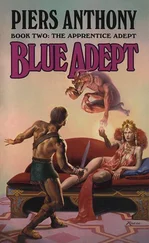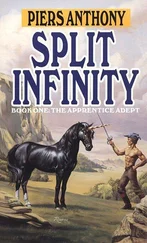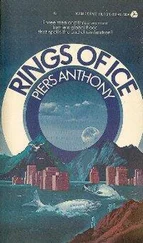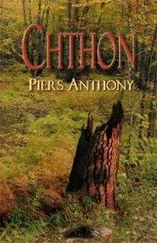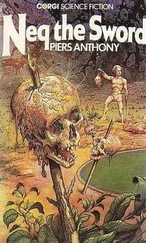Piers Anthony - Out of Phaze
Здесь есть возможность читать онлайн «Piers Anthony - Out of Phaze» весь текст электронной книги совершенно бесплатно (целиком полную версию без сокращений). В некоторых случаях можно слушать аудио, скачать через торрент в формате fb2 и присутствует краткое содержание. Год выпуска: 1988, ISBN: 1988, Издательство: Ace, Жанр: Старинная литература, на английском языке. Описание произведения, (предисловие) а так же отзывы посетителей доступны на портале библиотеки ЛибКат.
- Название:Out of Phaze
- Автор:
- Издательство:Ace
- Жанр:
- Год:1988
- ISBN:9780450429248
- Рейтинг книги:5 / 5. Голосов: 1
-
Избранное:Добавить в избранное
- Отзывы:
-
Ваша оценка:
- 100
- 1
- 2
- 3
- 4
- 5
Out of Phaze: краткое содержание, описание и аннотация
Предлагаем к чтению аннотацию, описание, краткое содержание или предисловие (зависит от того, что написал сам автор книги «Out of Phaze»). Если вы не нашли необходимую информацию о книге — напишите в комментариях, мы постараемся отыскать её.
Out of Phaze — читать онлайн бесплатно полную книгу (весь текст) целиком
Ниже представлен текст книги, разбитый по страницам. Система сохранения места последней прочитанной страницы, позволяет с удобством читать онлайн бесплатно книгу «Out of Phaze», без необходимости каждый раз заново искать на чём Вы остановились. Поставьте закладку, и сможете в любой момент перейти на страницу, на которой закончили чтение.
Интервал:
Закладка:
“Use the computer access to gain entertainment or education,” she suggested. “Here, I will show you how.”
Soon Bane was seated before a screen, watching three-dimensional moving pictures within it. He found this fascinating, so very much like magic that it seemed pointless not to call it that. He could cause the pictures to change merely by telling them to.
He directed the screen to fill him in on the history of Proton. He wanted to know what had happened here after the frames had separated. He knew from what his father had said that once there was fairly free travel between the frames; each permanent resident of one frame seemed to have an other self in their other frame, who resembled him exactly. But only when one self died could the other cross what was called the curtain to the other frame. Stile had crossed when the Blue Adept died, and Stile had taken Blue’s place in the Blue Demesnes. But Blue had not been quite wholly dead; he had taken Stile’s body in Proton and taken up residence there. Stile himself had animated a golem body, which performed just like the original one. Such magnificent magic had been possible in those days. Then the fundamental stuff of magic, the rock Phazite, had been diminished; half of it had been transferred to Proton for the sake of some complex but apparently necessary balancing of the frames, and magic had forever lost much of its potency. The frames had been fully separated, so that no one could cross over anymore.
All this Bane had known all along. What he didn’t know was how Proton had fared in the interim. Since he had to remain here a while longer anyway, this did indeed seem to be the ideal occasion to learn about this. He knew that his father would be most interested in the information.
But acquiring the information turned out to be more complicated than he had supposed. There was so much of it! When he asked for the “History of Proton,” the screen went back to the planet’s discovery more than four hundred years before by an explorer-ship from the Empire of Earth: a beautiful world much resembling Phaze today. But there were creatures already on it, Earthlike creatures, including a few human beings. This indicated that there had been contact before. Since there had been a number of private expeditions to space, and not all of these made proper reports, it was concluded that one of these had colonized the planet, and the descendants of the colony had then forgotten its origin. This could have happened hundreds of years before.
Then it seemed that the planet was somehow double. There was reference to magic, which was of course impossible—
“Impossible!” Bane snorted. “You idiot!”
The narration froze in place. “New directive?” the screen inquired.
“Just skip it up to the past twenty years,” Bane said, deciding not to wrestle with this aspect.
Even so, it was more than he could grasp. History turned out to be not a single and straightforward process, but a complex tapestry of events. Citizens lost their positions, and new ones came into being; the mining of Protonite, the key resource of the planet, suffered a severe readjustment as cutbacks ordered by Citizen Blue took effect.
Citizen Blue! “Follow him!” Bane exclaimed.
So Mach’s father appeared. It seemed that he had more money or power than any other Citizen, so could make his will felt most effectively. He married Sheen, the humanoid robot female; this caused a furor. He required that the self-willed humanoid robots be granted serf status. Later he did the same for the most advanced humanoid androids, and for the humanoid cyborgs. Each such step was fought resolutely by the Contrary Citizens. Most recently he had done it for the aliens: those sapient creatures who could assume human form and mix with human beings on an equal intellectual and social basis.
“Agape,” he murmured, understanding her position in this at last.
The screen heard him. “Agape,” it said, showing a picture. “Sapient creature of Planet Moeba, first representative of this species participating in the Experimental Culture Project.”
“I didn’t mean to show her; I was just commenting,” Bane said. The screen returned to its prior business, describing the things that Citizen Blue had initiated in the past twenty years in Proton. It was an impressive listing; more changes had occurred in this period than in the prior two hundred years. The Experimental Culture Project was intended to enable the diverse types of sapient creatures to integrate their society without adverse pressures. Ordinary serfs were required to become the employees of individual Citizens at maturity, and were thereafter subject to the arbitrary will of those employers. The Experimentals had no such requirement; they were considered to be the employees of Proton itself, with no requirements. They were free to do what they wished, within their own section. When they went beyond it, they had to observe the normal forms, deferring in all things to Citizens, and not interfering with the activities of ordinary serfs.
“But what is the point?” Bane asked. He knew that idlers would not survive long in Phaze, and doubted they would be tolerated long in Proton.
‘The point is to ascertain whether the diverse species can successfully integrate,” the screen replied. “If this is affirmative, the entire society will be similarly integrated. There will be no distinctions between species or types, only between serf-status and Citizen status. Machines and aliens will have equal access to the benefits of Proton society.”
Bane nodded. This made sense to him. He would not have known how well unicorns and human beings could get along together, after centuries of noninvolvement with each other, if he had not known Neysa and Fleta.
Now he was learning how pleasant it could be to know an alien creature.
He glanced at the bed where Agape lay—and paused, astonished. She was there, but her form was not. She had become a mound of dark jelly that spread across the bed like so much spilled pudding. Only its cohesion and continuing quiver distinguished it from inanimate substance. She really was an amoeba: a blob of protoplasm.
Should he be revolted? He decided not to be. He had seen Fleta change to her natural unicorn form many times, and to her other hummingbird form, and back to girl form. That was interesting, not revolting; why should this be different? Agape had not concealed her nature from him, she had only tried to spare his feelings, because it seemed that other human beings had been upset by her true form. But he had come to know her mind and her personality, and he liked these. She was quite different from himself, physically; what did it matter?
He had had enough of education for now. He asked the screen for entertainment, and was rewarded by a “light-show” of phenomenal color and complexity. The lights brightened and dimmed, radiated out and in, changed shape and color, and assumed odd and fleeting shapes. Sometimes Bane, the viewer, seemed to be flying into a rapidly expanding bank of clouds; sometimes he seemed to be swimming in strange water. The configurations never repeated; he kept being surprised by what happened next.
Finally he told the screen to turn itself off. He walked about the room, thinking, trying to assimilate all that he had learned. One impression came through strongly: he liked this frame of Proton, despite its appalling degradation of the wilderness outside the domes. It had more than enough scientific magic inside the domes to make up. True, it had serious problems—but those represented not so much a liability as a challenge. Citizen Blue, who had been reared in Phaze, seemed to be Bane’s own kind of man. It would have been nice to work with him to complete the necessary changes in the society. In time, perhaps, even the pollution could be cured, and Proton could become green again outside. Of course he had to return to his own frame, but he would always be glad to have had this experience in this one.
Читать дальшеИнтервал:
Закладка:
Похожие книги на «Out of Phaze»
Представляем Вашему вниманию похожие книги на «Out of Phaze» списком для выбора. Мы отобрали схожую по названию и смыслу литературу в надежде предоставить читателям больше вариантов отыскать новые, интересные, ещё непрочитанные произведения.
Обсуждение, отзывы о книге «Out of Phaze» и просто собственные мнения читателей. Оставьте ваши комментарии, напишите, что Вы думаете о произведении, его смысле или главных героях. Укажите что конкретно понравилось, а что нет, и почему Вы так считаете.
